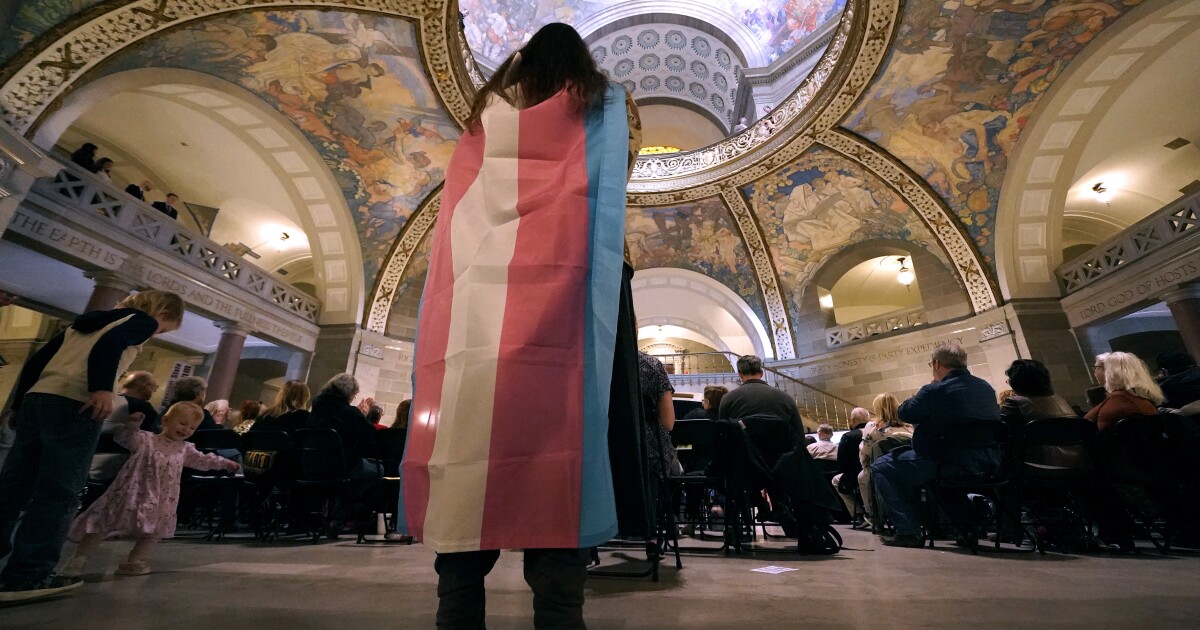

A wave of legislation affecting LGBT people has advanced a record number of bills across the country in 2023, especially focused on transgender youth.
The most common topics the bills center on involve sports participation, bathroom bans, and hormone treatments and surgeries.
US ALLIES AND PEERS MOVE TOWARD REGULATING ‘MISINFORMATION’ ON BIG TECH
Below is a roundup of the most recent measures involving LGBT issues from states with a high volume of bills, including red-state legislation such as Florida’s ban on K-8 classroom instruction on sexual orientation and gender identity.
Florida
Gov. Ron DeSantis (R-FL) signed the Let Kids Be Kids package of legislation into law in May. The bills included prohibiting sex reassignment surgeries and puberty blockers, requiring bathroom use that lines up with people’s sex assigned at birth, restrictions to sport participation in school programs, and other measures.
House Bill 1069 passed in an effort from the Republican legislature to prevent staff and employees from asking students “to provide certain titles and pronouns.” The bill also seeks to expand parental rights in pre-K through the 8th grade by “prohibiting classroom instruction on sexual orientation and gender identity.”
“Florida is proud to lead the way in standing up for our children,” DeSantis said in a press release. “As the world goes mad, Florida represents a refuge of sanity and a citadel of normalcy.”
Missouri
Missouri became the latest state to bar transgender minors from receiving gender transition surgery or treatments, with an exception for individuals already on hormones or puberty blockers.
Senate Bill 49 was signed by Gov. Mike Parson (R-MO) in June and includes limitations for certain adults seeking treatment, such as incarcerated people, and prevents Missouri’s Medicaid program from covering the treatment.
Parson also signed Senate Bill 39 into law simultaneously, banning transgender students from participating in school sports in a “competition that is designated for the biological sex opposite to the student’s biological sex as correctly stated on the student’s official birth certificate.”
The Republican governor said the two bills are an “effort to protect the integrity of female sports and Missouri children from potentially harmful experimental surgeries and treatment,” in a tweet.
Texas
Gov. Greg Abbott (R-TX) has signed a number of bills into law this year in the Lone Star State, relating to transgender people’s access to transition treatment and school sports teams.
The “Save Women’s Sports Act,” or Senate Bill 15, prohibits a biological male from competing in a college-level athletic competition in which biological female athletes compete in.
“Today is an important day for female athletes across the state of Texas, including little girls who aspire to one day compete in college sports,” Abbott said in a statement. “The Save Women’s Sports Act protects young women at Texas colleges and universities by prohibiting men from competing on a team or as an individual against them in college sports.”
Texas became the largest state to ban transition procedures and treatments for minors at the start of June. Under Senate Bill 14, doctors are barred from performing mastectomies or surgeries that would sterilize a minor and prevent providers from prescribing drugs that would induce temporary or permanent infertility.
North Carolina
North Carolina has ramped up efforts to ban hormone therapy, puberty blockers, and surgeries, with a bill passing in both legislative chambers last month, barring anyone under 18 from receiving those treatments. All Republican members voted along party lines to move House Bill 808, sponsored by GOP state Rep. Hugh Blackwell, to the Gov. Roy Cooper’s (D-NC) desk.
CLICK HERE TO READ MORE IN THE WASHINGTON EXAMINER
Also passing in both chambers is the Parents’ Bill of Rights, ordering educators to notify parents if a student uses a different name or pronoun that differs from a person’s gender identity at birth. Blackwell went against party lines voting no on the bill as the only Republican against the legislation.
North Carolina Republicans hold veto-proof majorities in both chambers of the General Assembly, issuing a threat to Cooper’s veto capabilities as the veto would likely be overridden.







